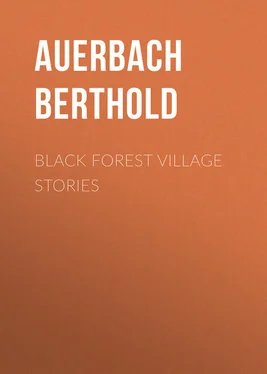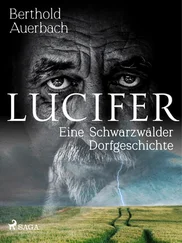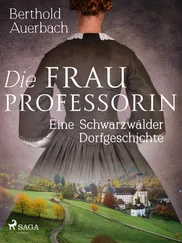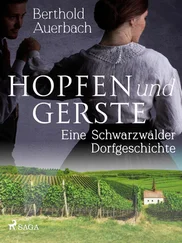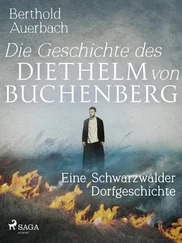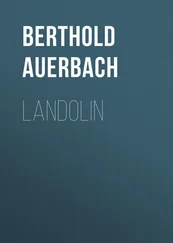Berthold Auerbach - Black Forest Village Stories
Здесь есть возможность читать онлайн «Berthold Auerbach - Black Forest Village Stories» — ознакомительный отрывок электронной книги совершенно бесплатно, а после прочтения отрывка купить полную версию. В некоторых случаях можно слушать аудио, скачать через торрент в формате fb2 и присутствует краткое содержание. ISBN: , Жанр: foreign_antique, foreign_prose, на английском языке. Описание произведения, (предисловие) а так же отзывы посетителей доступны на портале библиотеки ЛибКат.
- Название:Black Forest Village Stories
- Автор:
- Жанр:
- Год:неизвестен
- ISBN:http://www.gutenberg.org/ebooks/32517
- Рейтинг книги:4 / 5. Голосов: 1
-
Избранное:Добавить в избранное
- Отзывы:
-
Ваша оценка:
- 80
- 1
- 2
- 3
- 4
- 5
Black Forest Village Stories: краткое содержание, описание и аннотация
Предлагаем к чтению аннотацию, описание, краткое содержание или предисловие (зависит от того, что написал сам автор книги «Black Forest Village Stories»). Если вы не нашли необходимую информацию о книге — напишите в комментариях, мы постараемся отыскать её.
Black Forest Village Stories — читать онлайн ознакомительный отрывок
Ниже представлен текст книги, разбитый по страницам. Система сохранения места последней прочитанной страницы, позволяет с удобством читать онлайн бесплатно книгу «Black Forest Village Stories», без необходимости каждый раз заново искать на чём Вы остановились. Поставьте закладку, и сможете в любой момент перейти на страницу, на которой закончили чтение.
Интервал:
Закладка:
Inexperienced as Aloys was, he knew all about the three classes or "standings" into which the peasants of the Black Forest are divided. The cow-farmers are the lowest in the scale: their draught-cattle, in addition to their labor, must yield them milk and calves. Then come the ox-farmers, whose beasts, after having served their time, may be fattened and killed. The horse-farmers are still more fortunate: their beasts of draught yield neither milk nor meat, and yet eat the best food and bring the highest prices.
Whether Aloys took the trouble to compare this arrangement with the four castes of Egypt, or the three estates of feudalism, is doubtful.
On this New-Year's day, George derived a great advantage from his horses. After morning service, he took the squire's daughter and her playmate Mary Ann sleighing to Impfingen; and, though the heart of poor Aloys trembled within him, he could not refuse George's request to help him hitch the horses and try them in the sleigh. He drove about the village, quite forgetting the poor figure he cut beside the showy soldier. When the girls were seated, Aloys led the horses a little way, running beside them until they were fairly started, and then let them go. George drove down the street, cracking his whip; the horses jingled their bells; half the commune looked out of their windows; and poor Aloys stared after them long after they were out of sight; and then went sadly home, cursing the snow which brought the water to his eyes. The village seemed to have died out when Mary Ann was not to be in it for a whole day.
All this winter Aloys was often much cast down. At his mother's house the girls frequently assembled to hold their spinning-frolics, – a custom much resembling our quiltings. They always prefer to hold these gatherings at the house of a comrade recently married or of a good-natured widow; elder married men are rather in the way. So the girls often came to Mother Maria, and the boys dropped in later, without waiting to be invited. Hitherto Aloys had never troubled himself about them so long as they left him undisturbed: he had sat in a corner doing nothing. But now he often said to himself, "Aloys, this is too bad: you are nineteen years old now, and must begin to put yourself forward." And then again he would say, "I wish the devil would carry that George away piecemeal!" George was the object of his ill-humor, for he had soon obtained a perfect control over the minds of all the boys, and made them dance to his whistle. He could whistle and sing and warble and tell stories like a wizard. He taught the boys and girls all sorts of new songs. The first time he sang the verse, -
"Do thy cheeks with gladness tingle
Where the snows and scarlet mingle?" -
Aloys suddenly rose: he seemed taller than usual; he clenched his fists and gnashed his teeth with secret joy. He seemed to draw Mary Ann toward him with his looks, and to see her for the first time as she truly was; for, just as the song ran, so she looked.
The girls sat around in a ring, each having her distaff with the gilt top before her, to which the hemp was fastened with a colored ribbon; they moistened the thread with their lips, and twirled the spindle, which tumbled merrily on the floor. Aloys was always glad to put "a little moistening," in the shape of some pears or apples, on the table, and never failed to put the plate near Mary Ann, so that she might help herself freely.
Early in the winter Aloys took his first courageous step in right of his adolescence. Mary Ann had received a fine new distaff set with pewter. The first time she brought it into the spinning-room and sat down to her work, Aloys came forward, took hold of it, and repeated the old rhyme: -
"Good lassie, give me leave,
Let me shake your luck out of this sleeve;
Great goodhap and little goodhap
Into my lassie's lap.
Lassie, why are you so rude?
Your distaff is only of wood;
If it had silver or gold on't,
I'd have made a better rhyme on't."
His voice trembled a little, but he got through without stammering. Mary Ann first cast her eyes down with shame and fear lest he should "balk;" but now she looked at him with beaming eyes. According to custom, she dropped the spindle and the whirl, 3 3 A ring of hard wood or stone fixed to the end of the spindle, to weigh it down and improve its turning.
which Aloys picked up, and exacted for the spindle the promise of a dumpling, and for the whirl that of a doughnut. But the best came last. Aloys released the distaff and received as ransom a hearty kiss. He smacked so loud that it sounded all over the room, and the other boys envied him sorely. He sat down quietly in a corner, rubbed his hands, and was contented with himself and with the world. And so he might have remained to the end of time, if that marplot of a George had not interfered again.
Mary Ann was the first voice in the church-choir. One evening George asked her to sing the song of the "Dark-Brown Maid." She began without much hesitation, and George fell in with the second voice so finely and sonorously that all the others who had joined in also lapsed into silence one by one, and contented themselves with listening to the two who sang so well. Mary Ann, finding herself unsupported by her companions, found her voice trembling a little, and nudged her companions to go on singing; but, as they would not, she took courage, and sang with much spirit, while George seemed to uphold her as with strong arms. They sang: -
"Oh, to-morrow I must leave you,
My belovéd dark-brown maid:
Out at the upper gate we travel,
My belovéd dark-brown maid.
"When I march in foreign countries,
Think of me, my dearest one;
With the sparkling glass before you,
Often think how I adore you;
Drink a health to him that's gone.
"Now I load my brace of pistols,
And I fire and blaze away,
For my dark-brown lassie's pleasure;
For she chose me for her treasure,
And she sent the rest away.
"In the blue sky two stars are shining:
Brighter than the moon they glow;
This looks on the dark-brown maiden,
And that looks where I must go.
"I've bought a ribbon for my sabre,
And a nosegay for my hat,
And a kerchief in my keeping,
To restrain my eyes from weeping:
From my love I must depart.
"Now I spur my horse's mettle,
Now I rein him in and wait:
So good-bye, dear dark-brown maiden;
I must ride out at the gate."
When each of the girls had filled four or five spindles, the table was pushed into a corner, to clear a space of three or four paces in length and breadth, on which they took turns in dancing, those who sat singing the music. When George brought out Mary Ann, he sang his own song, dancing to it like a spindle: indeed, he did not need much more space than a spindle, for he used to say that no one was a good waltzer who could not turn around quickly and safely on a plate. When he stopped at last, – with a whirl which made the skirts of Mary Ann's wadded dress rise high above her feet, – she suddenly left him alone, as if afraid of him, and ran into a corner, where Aloys sat moodily watching the sport. Taking his hand, she said, -
"Come, Aloys, you must dance."
"Let me alone: you know I can't dance. You only want to make game of me."
"You g-" said Mary Ann: she would have said, "you gawk," but suddenly checked herself on seeing that he was more ready to cry than to laugh. So she said, gently, "No, indeed, I don't want to make game of you. Come; if you can't dance you must learn it: there is none I like to dance with better than you."
They tried to waltz; but Aloys threw his feet about as if he had wooden shoes on them, so that the others could not sing for laughing.
"I will teach you when nobody is by, Aloys," said Mary Ann, soothingly.
Читать дальшеИнтервал:
Закладка:
Похожие книги на «Black Forest Village Stories»
Представляем Вашему вниманию похожие книги на «Black Forest Village Stories» списком для выбора. Мы отобрали схожую по названию и смыслу литературу в надежде предоставить читателям больше вариантов отыскать новые, интересные, ещё непрочитанные произведения.
Обсуждение, отзывы о книге «Black Forest Village Stories» и просто собственные мнения читателей. Оставьте ваши комментарии, напишите, что Вы думаете о произведении, его смысле или главных героях. Укажите что конкретно понравилось, а что нет, и почему Вы так считаете.
